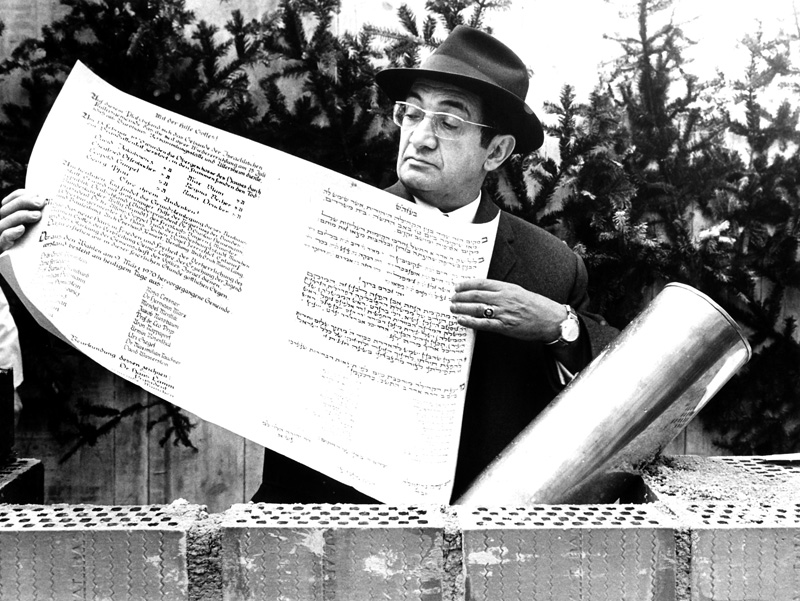Hans Lamm war der zweite Sohn des schwäbisch-jüdischen Unternehmers Ignaz Lamm, der sich mit seiner Frau vor dem Ersten Weltkrieg in München niedergelassen hatte, wo er eine Metallschmelze betrieb. Nach dem Abitur an der Luitpold-Oberrealschule nahm Lamm 1932 ein Studium der Rechts- und Zeitungswissenschaft an der Universität München auf, das er jedoch schon bald wegen der antisemitischen Politik der Nationalsozialisten abbrechen musste. Lamm arbeitete fortan als Journalist für diverse jüdische Zeitungen und war in der Israelitischen Kultusgemeinde München tätig. 1937/38 studierte er an der Lehranstalt für die Wissenschaft des Judentums in Berlin, ehe er seinem Bruder in die Emigration folgte. In den USA absolvierte Lamm ein Studium der Soziologie und der Sozialen Arbeit und war bei verschiedenen jüdischen Organisationen angestellt. 1944 erhielt er die amerikanische Staatsbürgerschaft.
Unmittelbar nach Kriegsende ging er für die American Jewish Conference nach Deutschland, um über die Lage der jüdischen Überlebenden zu berichten und deren Situation zu verbessern. 1946 bis 1952 war er Dolmetscher beim Nürnberger Hauptkriegsverbrecherprozess und bei den Nürnberger Nachfolgeprozessen sowie für den US Court of Restitution Appeals (Berufungsgericht in Rückerstattungsfällen). Daneben fertigte Lamm eine Dissertation „Über die innere und äußere Entwicklung des deutschen Judentums im Dritten Reich“ an, mit der er 1951 in Erlangen promoviert wurde. Nach erneutem USA-Aufenthalt kehrte Lamm 1955 endgültig nach Deutschland zurück, um sich am Wiederaufbau jüdischen Lebens und der demokratischen Erneuerung zu beteiligen: als Kulturdezernent des Zentralrats der Juden in Deutschland (1955-1960), als leitender Mitarbeiter der Münchner Volkshochschule (1961-1978), als Journalist, Publizist sowie als Gründer des Judaica-Verlags Ner-Tamid in München, in dem 1958 die erste Darstellung der jüdischen Stadtgeschichte vor 1945 erschien (Von Juden in München. Ein Gedenkbuch). Auch als Präsident der Israelitischen Kultusgemeinde München und Oberbayern (1970-1985) und Kuratoriumsmitglied der Gesellschaft für christlich-jüdische Zusammenarbeit (1967-1985) trug Lamm entscheidend zur Verständigung zwischen jüdischen und nichtjüdischen Deutschen bei. 1977 erhielt er dafür den Bayerischen Verdienstorden, 1978 die Medaille ‚München leuchtet‘ und 1981 das Bundesverdienstkreuz.


